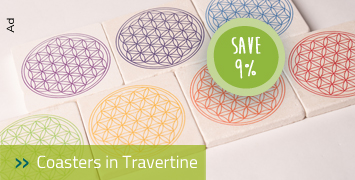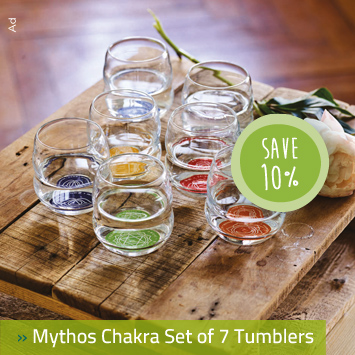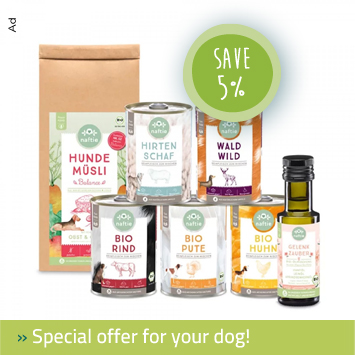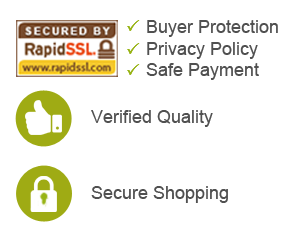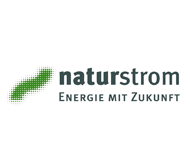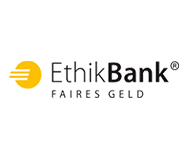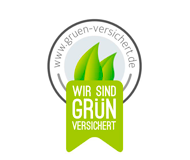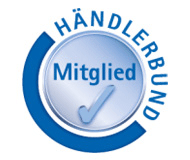Glossary
Would you like to know more? – Our glossary explains terms, eco seals and certificates of the bio branch and in the context of sustainable and organic products. From GOTS over organic cotton to vegan. Like everything in life the glossary is a subject to change and does not make any claims of being complete.
A
ABCERT
ABCERT is an ecological state-accredited inspection body throughout Germany and parts of Europe for certification in organic farming, agriculture and forestry accoding to European and US legal standards.
B
BDIH
Natural, herbal and organic cosmetics carrying the BDIH seal are checked by independent certification institutes to verify their ingredients and composition.read more »
At a minimum, however, the “BDIH-Standard” provides that the certified products were produced using only raw materials which meet the strict specifications. Many cosmetic manufacturers use raw materials from certified organic farming where it is not necessarily prescribed by BDIH standards. Organic cosmetics according to the rules of the BDIH may only be called „Bio“ if the organic content (ie without water and minerals) amounts to at least 95% in relation to all usable organic quality ingredients of the product. The ingredients that are from certified organic cultivaton have to be clearly declared. More criteria of the cosmetic seal are among others: environmental and resource-saving production methods, the optimal biological degradability of raw materials and the economical use of recyclable packaging materials. For the global control of cosmetic products in organic quality the BDIH operates under IONC (International Organic and Natural Cosmetics Corporation (IONC GmbH)).
« read lessBioland e.V.
BIOLAND e.V. is one of the leading associations for organic farming in Germany. The farmers, gardeners, beekeepers and winegrowers affiliated to Bioland operate according to strict guidelines.read more »
Genetic engineering, factory farming, synthetic chemical fertilizers and pesticides are excluded. On more than 50 pages, the guidelines explain the application of organic biological cultivation in detail. The standards explain the application of the organic biological methods of farming, the conversion to this method of operation and enable inspection of the cultivation defined according to the standards to be executed. These go far beyond the minimum of legal standards for organic food. More information in German language on http://www.bioland.de/
« read lessBioplastics
A specific organic material which is made mainly from the renewable raw material and biopolymer sugar. Bioplastics is free of harmful plasticizers.
bluesign® system
The bluesign® system is the solution for a sustainable textile production. It eliminates harmful substances right from the beginning of the manufacturing process and sets and controls standards for an environmentally friendly and safe production. read more »
This not only ensures that the final textile product meets very stringent consumer safety requirements worldwide but also provides confidence to the consumer to acquire a sustainable product. bluesign® product labeled textiles contain components that are resource saving and sustainably manufactured according to the bluesign® criteria. That includes not only fabrics but also accessories as zippers, buttons, buckles etc. Furthermore, the suppliers and manufacturers have been verified their compliance with the bluesign® standards controlled by bluesign® experts. The quality label bluesign® approved fabrics certifies that at least 90 per cent of the used fabrics comply with the strict safety and environmental requirements of the bluesign® criteria. Their suppliers and manufacturers have been verified as bluesign® system partners.
« read less
Blue Angel
Criteria, such as health protection and industrial safety, usability, economic use of raw materials read more »
during manufacturing and use, as well as durability and sustainable waste management are important. Source: http://www.wfto.com.
« read less
Business Social Compliance Initiative (BSCI)
The Business Social Compliance Initiative (BSCI) is a non-profit, European and cross-sectoral initiative. BSCI is a platform based in Brussels to improve social standards in a global value chain. read more »
As a member of the Global Compact, launched by Kofi Annan, the BSCI, and thus its members, are committed to accepting a uniform code of conduct based on the UN Declaration of Human Rights, ILO Fundamental Rights and the UN Conventions on Children's Rights and Human Rights and the elimination of all discrimination against women.
« read less
C
Certified organic livestock farming (kbT)
Certified organic livestock farming (kbT) is done according to the guidelines for organic cultivation. read more »
This includes species-appropriate husbandry (optimally adapted to the climate and living conditions of the region), biologically immaculate feeding and the absence of growth promoters (e.g. antibiotics).
« read lessclimatepartner©
climatepartner© advises companies wishing to operate active climate protection in the production and sales of goods. This involves carbon management in accordance with the sustainability strategy of the company, which wants to reduce its carbon footprint to reduce global warming.
COSMOS-Standard
COSMOS-Standard (COSMOS ORGANIC und COSMOS NATURAL) see more under ECOCERT.
Cradle to Cradle
Products that meet the criterion of "Cradle to Cradle", can be disassembled after use to its original components.
CSE Certified Sustainable Economics
CSE is a sustainability label, which certifies the entire company. Products labelled with the CSE seal have been produced by enterprises which act strongly according the sustainability principles. These enterprises fulfil all requirements in the field of environmental protection (ecology), society and quality of work as well as business (economy). The CSE certification requires, inter alia, Reduction of consumption of resource, resources from sustainable sources, involving disadvantaged people into their seasonal working procedures.
D
Demeter
Demeter is the first farming association for organic farming founded in Germany and now operating worldwide. The Demeter standards for biodynamic farming go far beyond the requirements of the EU Stanadard. Farmers and affiliated farms act also depending on the anthroposophic principles of biodynamic agriculture.
Durability
Quality product manufactured with robust materials in high-end methods with a “character of inheritance”.
E
ECOCERT
The French certification association for ecological products was founded in 1991 and developed a standard for cosmetics in 2002. The seal is owned by the ECOCERT Group, an international certification body. read more »
Natural cosmetics are certified according to the Europe-wide private standard COSMOS (COSMetic Organic Standard). It was developed by five stakeholders: BDIH (Germany), Cosmebio (France), Ecocert Greenlife SAS (France), ICEA (Italy) and Soil Association (Great Britain). Ecocert Cosmetics is a standard for environmentally friendly products, which guarantees the use of ingredients from renewable raw materials that are manufactured using environmentally friendly processes. The more extensive COSMOS standard (COSMOS ORGANIC and COSMOS NATURAL) is gradually replacing the Ecocert Cosmetics label. For organic cosmetics, the ingredients must be at least 95% certified organic and be included in the INCI list. In order to receive the COSMOS NATURAL label for natural cosmetics, a product must consist of at least 50% vegetable substances, and at least 5% of all raw materials must come from certified organic farming. Of course, many substances, such as silicones or synthetic ingredients, may not be used here either. A further requirement is environmentally friendly production and processing processes respecting also human health; no genetically modified substances, respect of biodiversity and recyclable packaging.
« read lessEcogarantie
Ecogarantie is an international mark based in Belgium. The Ecogarantie-seal is assigned according to ecological, read more »
social and econoimic guidelines for cosmetics, personal care, washing- and cleaning products and salt. In concrete terms this means among other things: ingredients of organic plant products; no testing of end products on animals; no ingredients of petrochemical origin; No genetically modified ingredients; maximisation of biodegradability.
« read lessEnergy Efficiency
The available energy is used optimally, no waste of energy.
ENERGY STAR
Labeling Energy Efficient Office Equipment
EU Ecolabel
The EU Ecolabel helps you identify products and services that have a reduced environmental impact throughout their life cycle, from the extraction of raw material through to production, use and disposal.
European Coalition to End Animal Experiments
European Coalition to End Animal Experiments – The ECEAE is the only European organisation exclusively representing animals used in scientific procedures. The ECEAE is opposed to all experiments on live animals as a matter of principle, and campaigns for an end to their use for this purpose in the EU. See also Leaping Bunny.
F
Fair Wear Foundation
The Fair Wear Foundation (FWF) is an international independent non-profit organization read more »
that works with companies and manufacturers to improve labour conditions in the clothing industry. The focus are social criteria, such as wages that secure the livelihood, freedom of association and the right for collective bargaining, elimination of forced labour, the abolition of child labour, the elimination of discrimination in respect of employment and occupation.
« read lessFSC
Forest Stewardship Council marks wood and timber products from sustainable forestry./div>
G
GMP (Good Manufacturing Practice)
Products that are produced in accordance with Good Manufacturing Practice (GMP) ensure a high product quality read more »
and meet the mandatory requirements for commercialization of the health authorities. These include medicines and drugs as well as cosmetics, food and feed. The GMP guidelines are concerning methods, systems or controls used in the manufacture, processing, packaging and/or storage.
« read lessGlobal Organic Textile Standard (GOTS)
The Global Organic Textile Standard (GOTS) is recognised as the world's leading processing standard for textiles read more »
made from organic fibres. It defines high-level environmental criteria along the entire organic textiles supply chain and requires compliance with social criteria as well.
« read less
Grüner Knopf („the green button“)
The green button is a state-supervised certification mark from Germany. The Germany Federal Ministry for Economic Cooperation and Development (BMZ) stipulates the criteria and conditions for the Grüner Knopf certification mark. The requirements apply for both products (e.g. fashion and household textiles) and companies. It is in black typeface and instead of the "o," there is a green button - that's what the government label looks like. read more »
The product must comply with 26 social and environmental requirements. This includes environmental criteria such as ban of dangerous chemicals according to the REACH regulation, biodegradability, fibres tested for harmful substances. The social criteria include, for example, employee rights, such as the applicable statutory minimum wage, the paid minimum wage and overtime and the right to non-discrimination, as well as prohibition of child and forced labour. The green button is a global certification mark. Companies in other countries can also use the green button and companies from abroad can also apply for the green button. The green button corresponds to EU and WTO law, the testing based on harmonised international standards.
« read less
H
Handmade
Manufactured by hand, no mass production.
Humane Cosmetic Standard
see Leaping Bunny
I
International Association of Natural Textile Industry (IVN)
The International Association of Natural Textile Industry (iVN) awarded the three quality seals NATURTEXTIL, NATURLEDER und GOTS. read more »
By reference to these seals of quality, consumers can be sure to get an ecological, socially acceptable and high-quality product.
« read lessL
Latex
see also natural rubber
Leaping Bunny
Leaping Bunny logo by Cruelty Free International & CCIC (Coalition for Consumer Information on Cosmetics), an international network of animal welfare organizations. It is the only internationally valid certification of its kind that excludes animal testing from all stages of product development for cosmetic, personal care, and/or household products.read more »
Manufacturers may not purchase products or ingredients from other producers or suppliers who conduct animal testing. Even if cosmetics manufacturers are increasingly are committed to manufacturing natural and vegan products, Leaping Bunny does not check the composition of the ingredients and takes no environmental or social aspects into account. The certification only addresses the focus on animal testing. The European equivalent is the European Coalition to End Animal Experiments, a grouping of 14 animal protection organisations across the European Union (EU).
« read lessM
Made in Germany
Production in Germany, encouragement of regional production. read more »
Significant production of the goods in Germany, crucial proportion of value added by assembling in Germany, significant refinement of the product in Germany.
« read lessN
Natural Cosmetics
Natural cosmetics are from plant-based materials from controlled biological cultivation or controlled biological wild collection. Certified natural cosmetics guarantee natural and organic ingredients.
Naturland
Naturland is an internationally active organic association located in Germany. The core of all Naturland’s standards is sustainability as the interaction of organic, social and economic aspects. Their holistic approach includes: sustainable management, nature conservation and climate protection in actual practice, preserving and maintaining the soil, air and water, as well as consumer protection.
Naturland Fair
Naturland Fair combines organic agriculture, social responsibility and fair trade, both locally and globally. In order that organic farmers can live by what they grow the Naturland association campaigns for organic farmers at local, national and international levels, wherever they are in the world, to have a future. Fair prices, reliable trading relationships and social responsibility are the cornerstones of this policy.
natureOffice
natureOffice is a consultancy for climate protection solutions. They develop strategies and operate processes for a sustainable commitment to voluntary climate protection. All climate projects which have been developed by natureOffice follow the highest sustainability standards.
Natural Rubber / Latex
The rubber trees grow in tropical regions. read more »
The trees are between 15 and 30 meters tall and have a trunk diameter of up to one meter. The trees are between five and eight years old before the plantation workers can harvest the first latex. To get the latex, the bark it is cut at an angle. Usually this happens before dawn, when the sap flows best. If a rubber tree is handled carefully, it provides latex until it is 40 years old. Natural rubber instead of synthetic rubber produced from oil acts against climate change. By increasing the number of trees less fossil fuels are consumed.
« read lessNaturtextil IVN certified BEST
A seal of approval for the certification of organic textiles with the highest demands that are presently realizable.
NATRUE Label
The NATRUE Label distinguishes natural cosmetics. NATRUE registered under Belgian law an international non-profit association. The NATRUE certification focuses on the ingredients of cosmetics. read more »
Fossil oil and artificial ingredients are not permitted. At least 75 percent of the individual products in a product series must meet the criteria of the label. The label distinguishes three different certification levels: natural cosmetics, natural cosmetics with organic ingredients from certified organic farming and organic cosmetics. More information at http://www.natrue.org/ .
« read lessNGO: non-governmental organization
A non-governmental organization (NGO) is any non-profit, voluntary citizens' group read more »
which is organized on a local, national or international level. Task-oriented and driven by people with a common interest, NGOs perform a variety of service and humanitarian functions, bring citizen concerns to Governments, advocate and monitor policies and encourage political particpation through provision of information. Some are organized around specific issues, such as human rights, environment or health. They provide analysis and expertise, serve as early warning mechanisms and help monitor and implement international agreements. Their relationship with offices and agencies of the United Nations system differs depending on their goals, their venue and the mandate of a particular institution. [Source: http://www.nachhaltigkeit.info/artikel/nro_ngo_560.htm + http://www.unric.org/de/aufbau-der-uno/85 ].
« read lessNOMITE mark
The NOMITE mark indicates that a product is suitable for house-dust-mite-allergy sufferers: read more »
because down- and feather-filled products offer excellent thermal and climatic conditions for humans (rapid warming up when one is sleeping, rapid decrease in humidity when the bedding is aired), they provide a very poor habitat for house dust mites, which rely on high humidity to live. T he tight weave of the down- and feather-proof fabric acts as a barrier preventing the mites from passing through and offers, thus, additional protection. So that also those who suffer from house dust allergies or asthma can enjoy the natural comfort afforded by down and feather bedding. This has been demonstrated by scientific research. Nomite is a mark of the European Down 6 Feather Association (EDFA). [Source: http://www.nomite.de/de/home.html].
« read lessNordic Ecolabelling
The Nordic Swan Ecolabel is a comprehensive ecolabel. This means that, in developing criteria, Nordic Ecolabelling look at the whole life cycle of the product and all its related environmental issues. Climate considerations are thus a key element of the assessment. read more »
The Nordic Swan Ecolabel is a voluntary ecolabelling scheme that evaluates a product's impact on the environment throughout the whole life cycle. The label guarantees among other things that climate requirements are taken into account, and that CO2 emissions (and other harmful gasses) are limited - where it is most relevant. By buying Nordic Swan Ecolabelled products and services, you as a consumer can contribute to a more sustainable environment. [Source: http://www.nordic-ecolabel.org/].
« read lessO
OEKO-TEX® Standard 100
The OEKO-TEX® Standard 100 labels textile raw materials, intermediate and end products at all stages of production. This products do not contain illegal and legally regulated substances and no notoriously harmful chemicals.
Organic Cotton
Organic cotton is grown according to strict ecological guidelines. No harmful chemical fertilizers and pesticides are used. You can find more about organic cotton here.
P
PEFC
PEFC stands for „Programme for the Endorsement of Forest Certification Schemes". Whether wood or paper products, consumers can be sure that PEFC certified products are sourced from sustainable forestry and controlled sources. For more information see https://pefc.org .
R
Raw material from organic farming
are characterized – among other things – by the fact that the manufacturers waive chemical pesticides and fertilizers, do not use genetic engineering and keep animals species-appropriate.
Recycling
Recycling means that products are collected, sorted and separated into their components. read more »
Useful materials are reclaimed. This results in raw materials which can be used for the manufacture of other products. The volume of waste is reduced and the lifetime of raw materials is extended.
« read lessRegional Production
Production in the manufacturing country, encouragement of regional production. read more »
Significant production of the goods in the country of production, crucial proportion of value added by assembling in the country of manufacture, significant refinement of the product in manufacturing country.
« read lessReduction of pollutant
Use of low-pollution materials and raw materials.
Resource-Efficient
the lowest possible use of resources for maximum benefit.
S
SEDEX (Supplier Ethical Data Exchange)
Social sustainability for the supply chain. The internationally recognized database platform SEDEX (Supplier Ethical Data Exchange) provides an important contribution to transparency in the interest of sustainable corporate social commitment. read more »
For suppliers and customers throughout the chain of supply via SEDEX inspection reports on subjects such as working conditions, health and environmental protection, and ethical business practices are available. SEDEX associated companies in more than 150 countries act based on the principles of ethical and social sustainability.
« read less
Stainless Steel Type AISI204cu
Stainless steel of Type AISI 204cu is a chromium-nickel alloy with about an amount of 16.5% chromium and about 2% nickel. AISI is the American term for standard stainless steel (American Iron and Steel Institute). read more »
In Germany usually the DIN system (known as the 18/8) is used. In the US and many other countries, the AISI (American Iron and Steel Institute). There are also numerous different types of stainless steel that are suitable for a variety of purposes. (AISI204cu is very good for use with foodstuffs like 18/8 stainless steel. The material is proved acid-resistant, ie there are no smell or taste deviations in use with acidic foods (eg apple). In addition, AISI204cu rustless and corrosion resistant (chromium content of approximately 16.5%) and thus easy to clean in the dishwasher.)
« read less
spiel gut e.V. (good toys)
Since 1954, educationalists, psychologists, doctors, technicians, experts in design, chemistry, electronics ... and parents – read more »
scientific and practical people – have been examining and assessing toys – from babies' rattles to material for experimenting. They work on a honorary basis and are independent of the toy industry and retailers. The “spiel gut” recommendation signifies that this toy has been tested with children and examined by experts with a positive result. The criteria: play value, material, workmanship, construction, durability, safety, design, size, quantity, quality of the instructions for playing or making, suitability for the appropriate age group ... Source: http://spielgut.de/international/welcome.htm Source: http://www.spielgut.de.
« read less
T
TOG
TOG is a measuring unit for the thermal resistance of textiles. read more »
The tog rating or weight of a sleeping bag determines its thickness and therefore how warm it keeps your child. Sleeping bags for babies are offered in 4 TOG values of 0.5-3.5. The higher the tog rating (weight) the warmer the sleeping bag. The recommendation is based on the room temperature in which the child sleeps. Whether your baby feels comfortable and sleeps in the right sleeping bag, you can easily find out. Cool hands or feet are quite normal, but if they are cold and pale, then the little ones need more warmth. If, on the other hand, it starts to sweat at the neck or if the head is warm or red, the sleeping bag is too thick. These are guidelines only – you should always check your baby to make sure they don’t overheat. Remember it is better to be cool than hot and it is quite normal for the baby’s hands and arms to be cool. Feel the nape of your baby’s neck – if it is damp then your baby might be too warm.
« read lessU
Upcycling
When upcycling discarded objects, production residues, waste or scrap and packaging materials read more »
are used as raw material to manufacture new products. The result are high quality end products with a higher value than it has been the case with the starting material. Due to exceptional craftsmanship often small series and unique pieces are created.
« read lessV
Vegan
Vegan means to go without raw materials of animal origin. read more »
Vegan products are free of animal ingredients such as leather and wool. Vegan foods do not contain components descended from animals e,g, meat, milk, eggs, gelatin and others. Concerning natural cosmetics the „Vegan“-label is only awarded if not only the waiver of ingredients of animal origin is ensured but also the waiver of animal testing.
« read lessVegan Trademark (vegan flower)
The Vegan Trademark was launched in 1990 by the Vegan Society. The trademark distinguishes food, cosmetics and cleaning agents. read more »
The products must consist of 100% vegetable ingredients and have to be free from any ingredient resulting from slaughter. No animal components, no animal by-products or raw materials derived from animals may be used in the production process. All raw materials must be produced without animal testing. If a company produces both vegan and products with animal components, all machines must be cleaned before they come into contact with the vegan ingredients. The development and/or production of genetically modified organisms (GMO) must not have involved animal genes or animal-derived substances. Products put forward for registration which contain or may contain any GMOs must be labelled as such. The vegan flower says nothing about the certified organic or fair trade quality of the ingredients, unless the manufacturers provide voluntary information or have their products certified by an organic seal.
« read lessW
World Fair Trade Organization (WFTO)
The World Fair Trade Organization (WFTO) is a global network of organisations representing the Fair Trade supply chain. read more »
Membership of WFTO provides Fair Trade organisations with credibility and identity by way of an international guarantee system; a place of learning where members connect with like-minded people from around the world; tools and training to increase market access; a common voice that shouts out for Fair Trade. WFTO is the home of fair traders: producers, marketers, exporters, importers, wholesalers and retailers that demonstrate 100% commitment to Fair Trade and apply the 10 WFTO Principles of Fair Trade in their daily operations. The works and achievements of its members make WFTO a global authority on Fair Trade and a guardian of Fair Trade values and principles. Consistent with the goal of Fair Trade, which is to enable producers to improve their livelihoods and communities through trading with agreed set of principles, WFTO’s route to equity in trade is through the supply chain. Practices across the Fair Trade chain are checked against the WFTO Fair Trade Standard, a set of compliance criteria based on the 10 Fair Trade Principles and international labour conventions. Source: http://www.wfto.com
« read less


